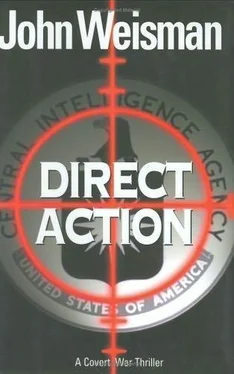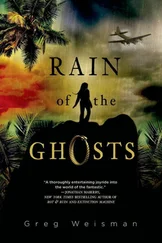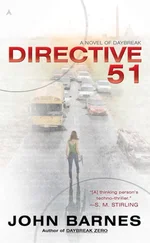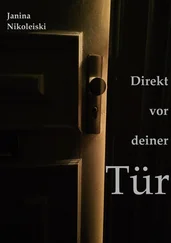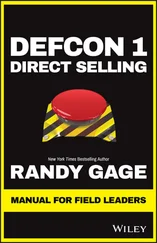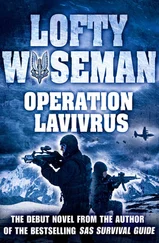Reuven suggested an early-morning insertion because rue Lambert would be deserted after midnight. The construction site adjacent to L’Étrier was locked up tight at 5P.M. and opened at eight in the morning. The bistro closed down by ten, the café half an hour later. Normally, Reuven said, the street was all tucked in and bedded down by 11P.M. And the early risers didn’t start moving until 6:30 or so. That gave Tom and him a roughly two-hour window to do what they had to do.
Even so, the approach would have to be on foot. Vehicles stick out like sore thumbs on streets like rue Lambert no matter what the hour, and the last thing Tom wanted was to give some bored gendarme pause for concern. So just after one in the morning, they cruised the neighborhood in one of the dinged-up 4627 vans until they finally found a parking spot on the boulevard Barbès, about a block and a half south of the Château Rouge metro stop. It was a bit farther from the target than they wanted to be, but given the parking situation in Paris-which is tight no matter what the hour-it could have been worse.
They sat, lights out, for twenty minutes and noticed nothing untoward. Traffic was light. There were no repeaters cruising. So they climbed out into the damp chill, locked the van, and walked north. They were both in disguise. Reuven wore a chef’s baggy checked trousers and carried a leather-wrapped roll of knives inside of which were concealed the silent drill and video cameras. Tom, also in chef’s clothes, carried a large cloth shopping bag that bore the logo of the Charles de Gaulle duty-free shops. The bag contained what appeared to be food and wine. Actually, the bottles and packages held dye and plaster, as well as an assortment of other supplies in case of contingencies.
Reuven had spent the past few days walking the neighborhood and he knew it as well as any native. His insertion route took them north along the store-lined boulevard to rue Custine, a two-way street that had light nighttime traffic. They’d veer onto rue Custine, make their way to rue Nicolet, then approach the target from the south side of rue Lambert. Once there, they’d head straight for the door and make entry.
Indeed, getting inside was going to be the easiest part of the evening’s work. Reuven had managed to make a copy of the outside door key. It hadn’t been hard. It took him less than two days of surveillance to get a sense of the street’s rhythms. He’d targeted an elderly woman resident of the house-watched as she’d gone shopping, then bumped her as she struggled, her arms filled with groceries, to pull keys out. Of course she’d dropped them and Reuven, hugely apologetic for his clumsiness, had retrieved them for her, found the door key, opened the door, then handed them back.
She’d never noticed him palm her house key and press it into the small tin of modeling clay he held in his hand. He didn’t even have to make impressions of both sides. The door lock was a cheap one-he’d be able to fabricate a duplicate out of a blank in a matter of minutes.
1:35A.M. They’d just passed a shuttered KFC chicken joint and crossed onto rue Custine when a vehicle passed them, moving slowly. Light-colored Citroën. Parisian tags. A single silhouette inside. Neither Tom nor Reuven reacted. They stayed on the eastern side of rue Custine, two slightly intoxicated guys weaving slightly as they walked, after a long night.
They’d just crossed rue Doudeauville when they heard a car approaching from the rear. As it passed, Reuven gave Tom an imperceptible nudge. Same Citroën. Not good. Cops? Maybe. DST? Possible. Bad guys? Not out of the question, either. Whichever one didn’t matter. What mattered was they’d been noticed. Not only noticed, but whoever it was had wanted them to know they’d been noticed.
They continued on another block, moving past the insertion point. On the corner of rue Labat they saw a van parked close enough to the intersection so that it almost protruded into the right-of-way. Tom almost didn’t give it a second glance-until the vehicle rocked ever so slightly as they crossed the street. There were people inside. More sentinels.
The two men kept moving until they were out of sight of the van. They were now faced with a tough decision. They’d been spotted-twice. And if the opposition was on its toes (and they had no reason to believe it wasn’t), they’d been videoed. The question now became whether to proceed or to pack it in and try again another night using another set of identities and prosthetics.
Tom looked at his Israeli colleague. “So?”
“So?” Reuven shrugged. “So, obviously we’re blown.” He paused. “What do you want to do?”
Tom thought about it. “I think we go provocative.”
“Rue Lambert?”
“What other choice do we have? They know we’re here. And a hundred euros says that after tonight, he closes this place down and who knows how long it’ll take us to find his next safe house. I want to know what he’s doing that’s so important.”
“I agree.” The Israeli nodded. “So, nazuz -let’s move.”
1:41A.M. They walked along the opposite side of rue Lambert, moving north to south, nattering at each other in low tones. Tom glanced across the narrow street toward the target doorway. A homeless man accompanied by a scroungy dog was huddled there, asleep or passed out.
Reuven whispered, “What a coincidence, huh?”
Tom snorted. “Yeah, right.” He knew there are no such things as coincidences. There were a lot of doorways in this neighborhood, and this bum was the only vagrant they’d seen. Provocatively, they crossed the street and passed directly in front of the sleeping man.
The dog’s ears flattened against its head and it growled as Tom and Reuven approached. The man stirred, as if roused from a deep sleep. He was dressed for the street: three or four layers of old clothes. His hair was matted into dreadlocks. His untied shoes were scuffed raw. The man looked at them through hooded, wary eyes, then lay back down, belching loudly as they drew abreast.
“Goddamn, Jean-Pierre,” Reuven muttered as they passed. “I thought you said this was a shortcut.”
“Screw you, Philippe,” Tom answered.
They continued to the bottom of the street and turned the corner, heading east.
Reuven said, “You saw the watcher behind us?”
Tom nodded. For a fleeting instant there had been a silhouette in a doorway near the corner of where Nicolet dead-ended into rue Bachelet. Tom swung his head around to catch a second look. He saw nothing. He was certain something big was going on. The opposition had the neighborhood sealed off. “Was it like this yesterday?”
“No.”
So the development was recent. The implications were troubling-a leak, or a penetration of 4627. But he couldn’t worry about those possibilities now. He had to concentrate on the current situation. “The guy down the street from us. Did you see his hands?”
“Hands were at his sides,” Reuven said.
“Agreed. That tells me he doesn’t have night vision.”
The Israeli slowed down. “So, nu ?”
“That means,” Tom said, “we go to Plan C.”
“You’re a funny fellow.”
Tom paused just long enough to look at the Israeli. “What do you think?”
“One: I’ve never seen a street person in six days of surveilling this neighborhood. Now we see one-two if you count the guy behind us. Two: the guy we passed looked pretty authentic, but he smelled clean. I caught a whiff of soap. Three: you saw how his shoes were all scuffed up? But the soles were brand-new rubber.” He looked at Tom. “You?”
“Agreed. I missed the soap. But I caught the shoes.”
“So?”
“Tells me there’s activity up there-important enough for them to set both static and mobile security. I want a look-see.” He stared at the Israeli. “Possible?”
Читать дальше
